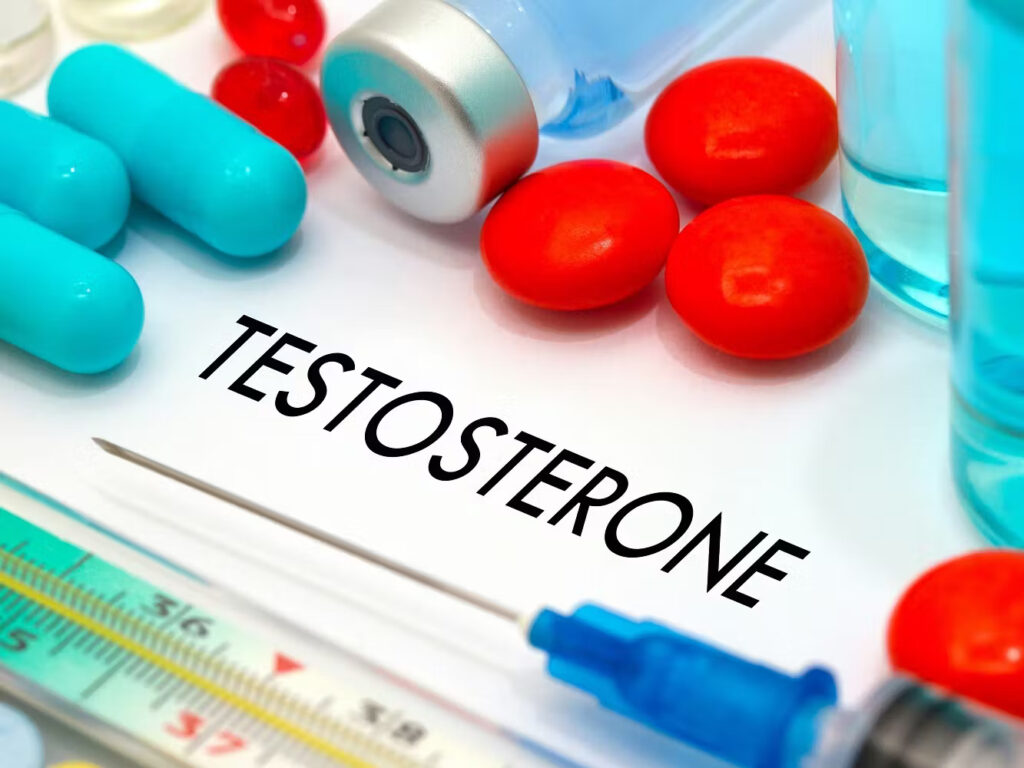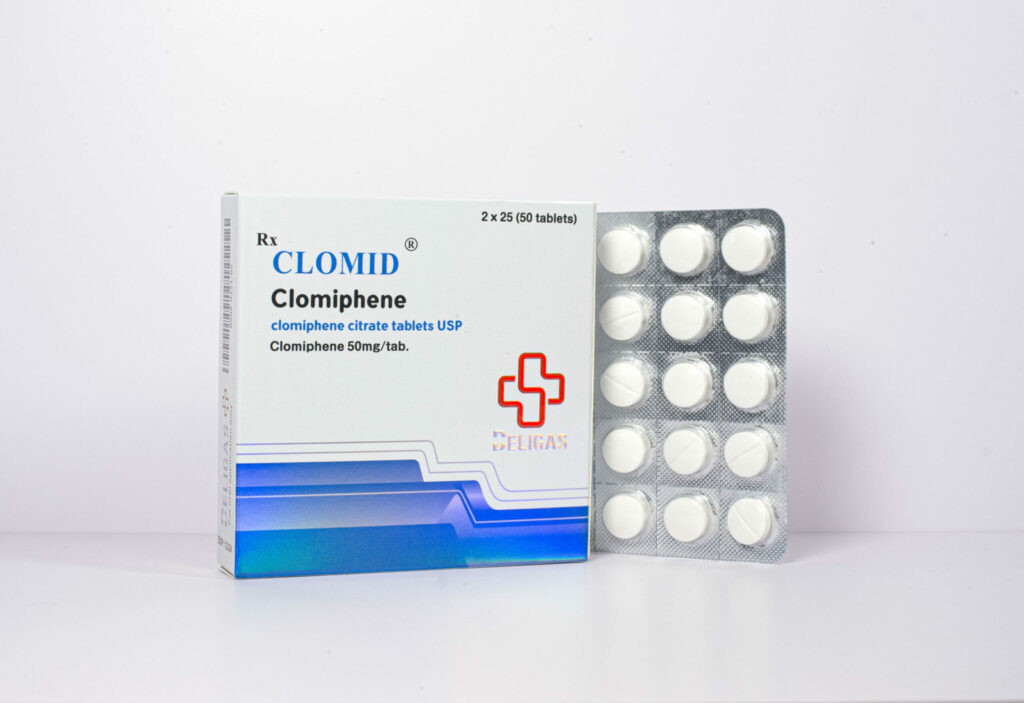Discover the essentials about using Clomid for low testosterone in this comprehensive guide.
Understanding Low Testosterone
Low testosterone, also known as hypogonadism, is a condition that occurs when the body fails to produce enough testosterone. Testosterone is a hormone responsible for many important functions in the male body, including the development of muscle mass, bone density, and sexual characteristics. It is also essential for maintaining energy levels, libido, and mood.

Low testosterone can have a significant impact on a man’s overall health and well-being. In addition to the physical effects, such as decreased muscle mass and bone density, low testosterone levels can also lead to emotional changes, including depression and irritability. Understanding the causes and symptoms of low testosterone is crucial for proper diagnosis and treatment.
Causes of Low Testosterone
There are several factors that can contribute to low testosterone levels. Aging is one of the main causes, as testosterone production naturally decreases as men get older. Other causes include chronic illnesses, such as diabetes or liver disease, obesity, hormonal disorders, and certain medications.
In some cases, low testosterone levels may be the result of a genetic condition or a problem with the testes or pituitary gland. It is important to consult with a healthcare provider to determine the underlying cause of low testosterone and develop an appropriate treatment plan.
Symptoms and Diagnosis of Low Testosterone
The symptoms of low testosterone can vary from person to person, but commonly include fatigue, decreased libido, erectile dysfunction, mood swings, and decreased muscle mass. If you are experiencing these symptoms, it is recommended to see a healthcare professional for a blood test to determine your testosterone levels.
Diagnosing low testosterone involves a comprehensive evaluation of symptoms, medical history, and laboratory tests. A healthcare provider will assess the patient’s overall health and lifestyle factors that may contribute to low testosterone levels. Treatment options may include hormone replacement therapy, lifestyle modifications, and medications to address specific symptoms.
An Overview of Clomid
Clomid, also known by its generic name Clomiphene citrate, is a medication primarily used to treat infertility in women. However, it has also been found to be effective in stimulating testosterone production in men with low testosterone levels.
Clomid is classified as a selective estrogen receptor modulator (SERM), which means it has both estrogenic and anti-estrogenic properties depending on the target tissue. This dual nature of Clomid allows it to effectively regulate hormone levels in the body, making it a versatile treatment option for various hormonal imbalances.
What is Clomid?
Clomid works by blocking the action of estrogen in the body, which leads to increased production of follicle-stimulating hormone (FSH) and luteinizing hormone (LH). These hormones play a crucial role in stimulating testosterone production in the testicles.

It is important to note that Clomid should only be used under the supervision of a healthcare provider, as improper use or dosage can lead to potential side effects such as hot flashes, mood swings, and visual disturbances. Monitoring hormone levels and adjusting the treatment plan accordingly is essential to ensure the safe and effective use of Clomid.
How Does Clomid Work?
Clomid works by binding to estrogen receptors in the hypothalamus and pituitary gland. This prevents estrogen from binding to these receptors, which in turn stimulates the release of gonadotropin-releasing hormone (GnRH). GnRH then signals the pituitary gland to release more FSH and LH, which subsequently stimulate the production of testosterone.
Additionally, Clomid has been studied for its potential off-label uses in the treatment of certain types of male infertility, hypogonadism, and even as a post-cycle therapy for athletes using anabolic steroids. The versatility of Clomid in addressing various hormonal issues highlights its significance in the field of reproductive medicine and endocrinology.
Clomid as a Treatment for Low Testosterone
Clomid has shown promising results as a treatment for low testosterone in men. It offers an alternative to testosterone replacement therapy (TRT), which involves injecting testosterone into the body.
Low testosterone, also known as hypogonadism, can have various causes such as aging, certain medical conditions, or lifestyle factors. Symptoms of low testosterone can include fatigue, decreased libido, and reduced muscle mass. Clomid, also known by its generic name clomiphene citrate, is commonly used in the treatment of female infertility but has gained attention for its off-label use in men with low testosterone.
The Role of Clomid in Testosterone Production
Clomid acts as a stimulant for the body’s own testosterone production. By increasing FSH and LH levels, Clomid helps to kickstart the testicles’ ability to produce testosterone naturally. This is particularly beneficial for men who wish to maintain their fertility or avoid the potential side effects of exogenous testosterone therapy.
FSH (follicle-stimulating hormone) and LH (luteinizing hormone) are crucial for the production of testosterone in the testes. Clomid works by blocking estrogen receptors in the hypothalamus, leading to an increase in GnRH (gonadotropin-releasing hormone) secretion. This, in turn, stimulates the pituitary gland to release more FSH and LH, which then signal the testes to produce more testosterone.
Effectiveness of Clomid for Low Testosterone
Studies have shown that Clomid can help raise testosterone levels in men with low testosterone. However, it is important to note that the effectiveness of Clomid may vary from person to person. Some men may experience a significant increase in testosterone levels, while others may only see a modest improvement. It is crucial to work closely with a healthcare professional to monitor hormone levels and adjust the dosage if necessary.
It is essential for individuals considering Clomid as a treatment for low testosterone to undergo thorough evaluation and monitoring. Blood tests to measure testosterone levels, along with potential side effects such as mood changes, hot flashes, or vision disturbances, should be closely monitored during treatment. Additionally, lifestyle modifications such as regular exercise, adequate sleep, and a balanced diet can complement the effects of Clomid in managing low testosterone.
Potential Side Effects of Clomid
Like any medication, Clomid carries the risk of side effects. However, these side effects are generally mild and reversible.
Clomid, also known as clomiphene citrate, is a commonly prescribed fertility medication that is used to stimulate ovulation in women who have trouble conceiving. It works by blocking estrogen receptors in the brain, which in turn triggers the release of hormones necessary for ovulation.
Common Side Effects
Common side effects of Clomid may include hot flashes, mood swings, headaches, nausea, and blurred vision. These side effects typically subside as the body adjusts to the medication, but if they persist or worsen, it is important to consult a healthcare professional.
Hot flashes, a sudden feeling of warmth or heat in the face and upper body, are a common side effect of Clomid. They are caused by the hormonal changes induced by the medication and are usually temporary. Mood swings and irritability are also common, as the hormonal fluctuations can affect neurotransmitters in the brain.
Serious Side Effects
Although rare, Clomid may cause more serious side effects. These can include allergic reactions, chest pain, shortness of breath, and visual disturbances. If any of these symptoms occur, it is vital to seek immediate medical attention.
Allergic reactions to Clomid can manifest as hives, itching, swelling of the face or throat, and difficulty breathing. In severe cases, anaphylaxis, a life-threatening allergic reaction, can occur and requires immediate emergency treatment. Chest pain and shortness of breath are symptoms that should never be ignored, as they could indicate a potentially serious cardiovascular issue. Visual disturbances, such as blurred vision or seeing spots or flashes of light, may be a sign of a rare but serious side effect of Clomid affecting the eyes.
Alternatives to Clomid for Low Testosterone Treatment
While Clomid can be an effective option for some men with low testosterone, it may not be suitable for everyone. Fortunately, there are alternative treatments available.
Testosterone Replacement Therapy
Testosterone replacement therapy (TRT) involves the administration of synthetic testosterone to increase testosterone levels in the body. TRT comes in various forms, including injections, gels, patches, and implants. It can be a highly effective option for men with low testosterone, particularly those who do not wish to pursue fertility or who have not experienced satisfactory results with Clomid.
When considering TRT, it is important to work closely with a healthcare professional who specializes in hormone therapy. They will assess your individual needs and determine the most appropriate form of TRT for you. Regular monitoring of hormone levels and potential side effects is crucial to ensure the therapy’s effectiveness and safety.
Lifestyle Changes and Natural Remedies
In addition to medical treatments, certain lifestyle changes and natural remedies may also help improve testosterone levels. These can include maintaining a healthy weight, exercising regularly, managing stress levels, and ensuring adequate sleep.
Regular exercise, such as resistance training and high-intensity interval training (HIIT), has been shown to increase testosterone levels in men. Engaging in physical activity not only helps boost testosterone production but also improves overall health and well-being.

Furthermore, managing stress levels is essential for hormone balance. Chronic stress can lead to increased cortisol production, which can negatively impact testosterone levels. Incorporating stress-reducing activities into your daily routine, such as meditation, yoga, or spending time in nature, can help support healthy testosterone levels.
In addition to lifestyle changes, some natural supplements have been found to support testosterone production. Zinc is an essential mineral that plays a crucial role in testosterone synthesis. Adequate zinc intake through diet or supplementation may help optimize testosterone levels. Similarly, vitamin D deficiency has been linked to low testosterone levels, so ensuring sufficient sun exposure or taking vitamin D supplements can be beneficial.
However, it is important to consult a healthcare professional before starting any natural remedies to ensure they are appropriate for your specific situation. They can provide personalized guidance and monitor your progress to ensure the interventions are safe and effective.
In conclusion, Clomid can be a viable option for men with low testosterone, offering a potential alternative to testosterone replacement therapy. By stimulating the body’s natural testosterone production, Clomid may help improve symptoms and restore hormone balance. However, it is crucial to work closely with a healthcare professional to determine the best treatment approach and monitor hormone levels effectively.
Whether choosing Clomid, testosterone replacement therapy, or exploring other options, addressing low testosterone can significantly improve quality of life and overall well-being. With the right treatment plan and support, men can regain vitality and vitality and enjoy a healthier, more fulfilling life.